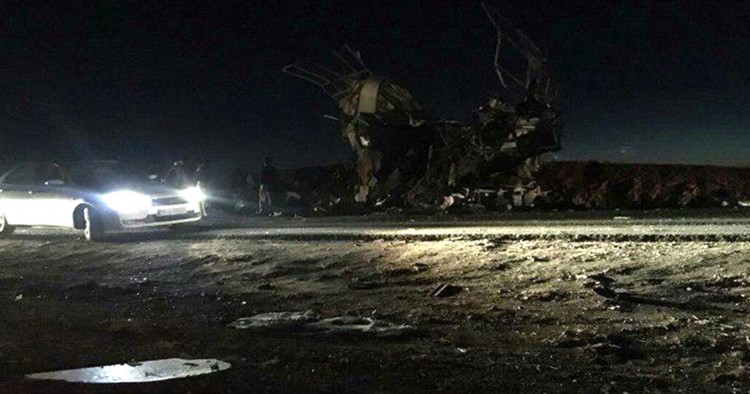A suicide attack today killed at least 20 members of the Islamic Revolutionary Guards Corps (IRGC) in Iran’s southeastern province of Sistan and Baluchistan and wounded many others. According to an IRGC statement, a suicide bomber detonated an explosive-laden truck near a bus carrying Quds Base personnel from the city of Khash to the provincial capital of Zahedan. The Quds Base is a unit of the IRGC’s Ground Forces in the southeast and not related to the elite Quds Force responsible for external operations.
Sistan and Balchistan lies on a major opium trafficking route and has experienced low-intensity militancy for decades. But the security situation in the province has become more volatile. With a sizable yet largely marginalized Sunni population, the region could become a breeding ground for local militant and separatist movements, as well as regional and international terrorist groups such as ISIS and al-Qaeda. The province also shares borders Afghanistan and Pakistan, where ISIS has gained a foothold recently.
Video Briefing
Today’s attack is likely to strain Iran’s foreign relations. It was claimed by Jaish al-Adl, a Sunni militant group based in Pakistan and responsible for a series of attacks in Iran’s southeast in recent years. Jaish al-Adl was formed by members of the terrorist group Jundollah after the latter’s leader, Abdolmalek Rigi, was arrested and executed by the Iranian government in 2010. In a statement today, the IRGC also placed blame on the United States, based on its belief that the intelligence agencies of U.S. regional allies support militant groups attacking Iran. Tehran has provided no evidence for such claims in the past.
The high-profile bombing is also concerning for Iran’s domestic security, as it may result in further militarization of border regions in the southeast and northwest largely populated by ethnic and religious minorities.
The Iranian government has for years tried to convince the Iranian people that Iran’s engagement in regional conflicts is essential to preventing terrorist groups from attacking the Iranian homeland. But today’s incident, similar to the deadly attack on a military parade in the southwest last September, may convince many Iranians that the government’s costly role in regional wars may have made the country more insecure. Iran’s Intelligence Ministry has revealed that Iranian security forces had disbanded nearly 100 “terrorist groups” across the country.
It remains to be seen whether these militant attacks, coming at a time that the country is facing antigovernment protests, partly because of Iran’s expenditures in foreign conflicts, will force the IRGC to curtail its expanding regional role and focus on domestic priorities.
(Fars News Agency/Anadolu Agency/Getty Images)
The Middle East Institute (MEI) is an independent, non-partisan, non-for-profit, educational organization. It does not engage in advocacy and its scholars’ opinions are their own. MEI welcomes financial donations, but retains sole editorial control over its work and its publications reflect only the authors’ views. For a listing of MEI donors, please click here.













